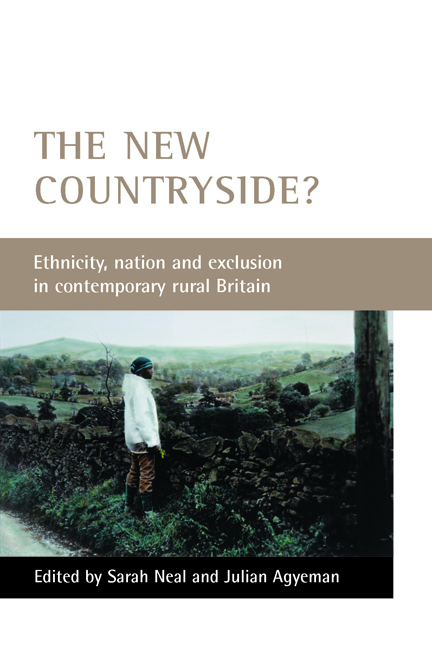one - ‘It goes without saying (well, sometimes)’: racism, Whiteness and identity in Northern Ireland
Published online by Cambridge University Press: 18 January 2022
Summary
Introduction
Northern Ireland is a predominantly rural region with the majority of its population (60%) living in villages, open countryside and small towns outside the two principal urban areas of Greater Belfast and Derry/Londonderry (DRD, 2001: 86). Characteristic of other rural areas across the UK, Northern Ireland is also an overwhelmingly White population. Data from the 2001 census estimate that there are only around 14,300 minority ethnic people living in the region, representing just 0.8% of the total population. Within this, the largest minority ethnic groups are the Chinese (4,100), followed by South Asians (2,500), Irish Travellers (1,700) and African Caribbeans (1,100). In terms of settlement patterns, each of these main ethnic groups tends to be fairly evenly distributed across the five education and library board areas that comprise the region, with the majority tending to live in rural and semi-rural areas. Only around a third of the Chinese, South Asian and African Caribbean populations and a quarter of the Irish Traveller population reside in the two principal urban areas of Belfast and Derry/Londonderry.
Given these relatively small numbers, and also characteristic of many other rural areas, there has also tended to be a strong denial that racism is a problem or even a significant political issue in Northern Ireland (Mann-Kler, 1997; Hainsworth, 1998; Connolly, 2002). This is most clearly evident, for example, by the fact that the core provisions of the 1976 Race Relations Act were not even applied to the region until just a few years ago via the implementation of the 1997 Race Relations (Northern Ireland) Order. Only since then have issues of ‘race’ and ethnicity begun to find their way onto the local political agenda. Up until this point, racism was rarely mentioned or discussed among politicians or the media, being seen as a problem that happened elsewhere; one associated mainly with the large multi-ethnic conurbations of England (Connolly, 2002).
The aim of this chapter is to show that, far from it being a distant concern, ‘race’ is actually a fundamental aspect of life within Northern Ireland. The chapter begins with a brief discussion of the salience of the rural in relation to constructions of identity and senses of belonging in Northern Ireland.
- Type
- Chapter
- Information
- The New Countryside?Ethnicity, Nation and Exclusion in Contemporary Rural Britain, pp. 21 - 46Publisher: Bristol University PressPrint publication year: 2006

